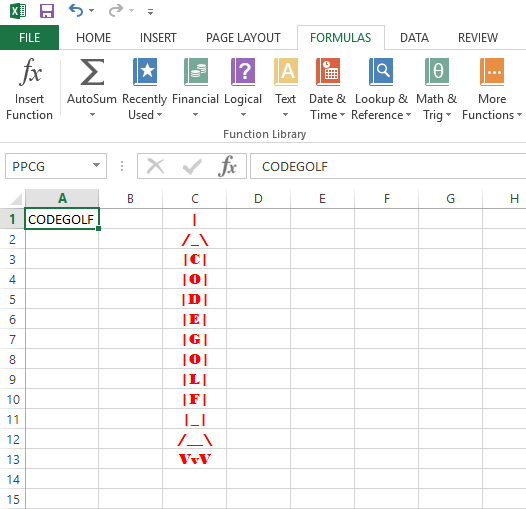59
14
Write a program or function that takes in a single-line string. You can assume it only contains printable ASCII. Print or return a string of an ASCII art rocket such as
|
/_\
|E|
|a|
|r|
|t|
|h|
|_|
/___\
VvV
with the input string written from top to bottom on the fuselage. In this case the input was Earth. The height of the rocket (including flames) is always the length of the string plus five.
Each line in the output may have up to two trailing spaces and there may be a single optional trailing newline. The shortest code in bytes wins.
More Examples:
[empty string]
|
/_\
|_|
/___\
VvV
a
|
/_\
|a|
|_|
/___\
VvV
|0
|
/_\
|||
|0|
|_|
/___\
VvV
\/\
|
/_\
|\|
|/|
|\|
|_|
/___\
VvV
_ _ [note trailing space]
|
/_\
| |
|_|
| |
|_|
| |
|_|
/___\
VvV
[4 spaces]
|
/_\
| |
| |
| |
| |
|_|
/___\
VvV
SPACEY
|
/_\
|S|
|P|
|A|
|C|
|E|
|Y|
|_|
/___\
VvV
Leaderboard
var QUESTION_ID=91182,OVERRIDE_USER=26997;function answersUrl(e){return"https://api.stackexchange.com/2.2/questions/"+QUESTION_ID+"/answers?page="+e+"&pagesize=100&order=desc&sort=creation&site=codegolf&filter="+ANSWER_FILTER}function commentUrl(e,s){return"https://api.stackexchange.com/2.2/answers/"+s.join(";")+"/comments?page="+e+"&pagesize=100&order=desc&sort=creation&site=codegolf&filter="+COMMENT_FILTER}function getAnswers(){jQuery.ajax({url:answersUrl(answer_page++),method:"get",dataType:"jsonp",crossDomain:!0,success:function(e){answers.push.apply(answers,e.items),answers_hash=[],answer_ids=[],e.items.forEach(function(e){e.comments=[];var s=+e.share_link.match(/\d+/);answer_ids.push(s),answers_hash[s]=e}),e.has_more||(more_answers=!1),comment_page=1,getComments()}})}function getComments(){jQuery.ajax({url:commentUrl(comment_page++,answer_ids),method:"get",dataType:"jsonp",crossDomain:!0,success:function(e){e.items.forEach(function(e){e.owner.user_id===OVERRIDE_USER&&answers_hash[e.post_id].comments.push(e)}),e.has_more?getComments():more_answers?getAnswers():process()}})}function getAuthorName(e){return e.owner.display_name}function process(){var e=[];answers.forEach(function(s){var r=s.body;s.comments.forEach(function(e){OVERRIDE_REG.test(e.body)&&(r="<h1>"+e.body.replace(OVERRIDE_REG,"")+"</h1>")});var a=r.match(SCORE_REG);a&&e.push({user:getAuthorName(s),size:+a[2],language:a[1],link:s.share_link})}),e.sort(function(e,s){var r=e.size,a=s.size;return r-a});var s={},r=1,a=null,n=1;e.forEach(function(e){e.size!=a&&(n=r),a=e.size,++r;var t=jQuery("#answer-template").html();t=t.replace("{{PLACE}}",n+".").replace("{{NAME}}",e.user).replace("{{LANGUAGE}}",e.language).replace("{{SIZE}}",e.size).replace("{{LINK}}",e.link),t=jQuery(t),jQuery("#answers").append(t);var o=e.language;/<a/.test(o)&&(o=jQuery(o).text()),s[o]=s[o]||{lang:e.language,user:e.user,size:e.size,link:e.link}});var t=[];for(var o in s)s.hasOwnProperty(o)&&t.push(s[o]);t.sort(function(e,s){return e.lang>s.lang?1:e.lang<s.lang?-1:0});for(var c=0;c<t.length;++c){var i=jQuery("#language-template").html(),o=t[c];i=i.replace("{{LANGUAGE}}",o.lang).replace("{{NAME}}",o.user).replace("{{SIZE}}",o.size).replace("{{LINK}}",o.link),i=jQuery(i),jQuery("#languages").append(i)}}var ANSWER_FILTER="!t)IWYnsLAZle2tQ3KqrVveCRJfxcRLe",COMMENT_FILTER="!)Q2B_A2kjfAiU78X(md6BoYk",answers=[],answers_hash,answer_ids,answer_page=1,more_answers=!0,comment_page;getAnswers();var SCORE_REG=/<h\d>\s*([^\n,]*[^\s,]),.*?(\d+)(?=[^\n\d<>]*(?:<(?:s>[^\n<>]*<\/s>|[^\n<>]+>)[^\n\d<>]*)*<\/h\d>)/,OVERRIDE_REG=/^Override\s*header:\s*/i;body{text-align:left!important}#answer-list,#language-list{padding:10px;width:290px;float:left}table thead{font-weight:700}table td{padding:5px}<script src="https://ajax.googleapis.com/ajax/libs/jquery/2.1.1/jquery.min.js"></script> <link rel="stylesheet" type="text/css" href="//cdn.sstatic.net/codegolf/all.css?v=83c949450c8b"> <div id="answer-list"> <h2>Leaderboard</h2> <table class="answer-list"> <thead> <tr><td></td><td>Author</td><td>Language</td><td>Size</td></tr></thead> <tbody id="answers"> </tbody> </table> </div><div id="language-list"> <h2>Winners by Language</h2> <table class="language-list"> <thead> <tr><td>Language</td><td>User</td><td>Score</td></tr></thead> <tbody id="languages"> </tbody> </table> </div><table style="display: none"> <tbody id="answer-template"> <tr><td>{{PLACE}}</td><td>{{NAME}}</td><td>{{LANGUAGE}}</td><td>{{SIZE}}</td><td><a href="{{LINK}}">Link</a></td></tr></tbody> </table> <table style="display: none"> <tbody id="language-template"> <tr><td>{{LANGUAGE}}</td><td>{{NAME}}</td><td>{{SIZE}}</td><td><a href="{{LINK}}">Link</a></td></tr></tbody> </table>

1Related. There may be others which are close enough that this counts as a dupe. – Peter Taylor – 2016-08-26T07:15:50.040
Are withespace characters (newline, tab and space) considered as printable ASCII? if yes should we take them into account and how (mainly for tab and newline) – Sefa – 2016-08-26T07:24:33.263
2
@Sefa Spaces yes. No to other whitespace. As the linked wiki indicates.
– Calvin's Hobbies – 2016-08-26T07:28:16.4936D'oh, I saw the title and expected something about brain surgery. :( – None – 2016-08-26T11:22:38.743
17And if the bottom points at the sky you will not go to space today. – AstroDan – 2016-08-26T17:59:22.550
1It's not rocket appliances! – Ryguy – 2016-08-29T21:13:17.403
4"It worked in Kerbal Space Program..." – Magic Octopus Urn – 2016-10-26T17:52:10.953
Could I enter with PETSCII characters rather than ASCII? See -> https://sta.c64.org/cbm64pet.html
– Shaun Bebbers – 2020-02-20T09:48:56.280